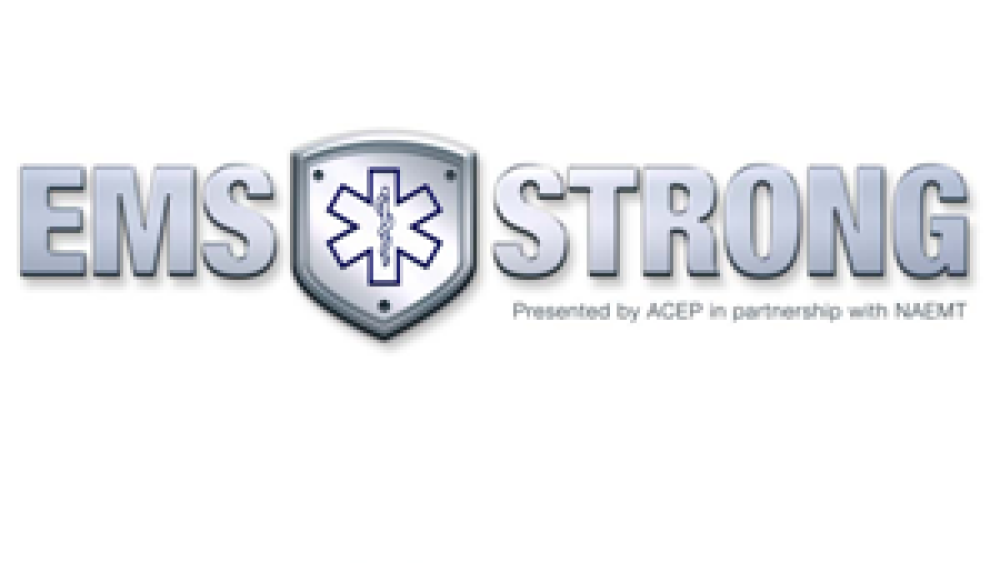I was recently asking a fellow paramedic about an innovative program his agency had implemented. Like many new community paramedic initiatives, this one involved close cooperation with members of the medical community whom he had rarely interacted with in the past, including primary care doctors and cardiologists.
One of the highlights of his new role overseeing the program was when cardiologists recognized him in the hospital and shook his hand. Isn’t it amazing how great it can feel to be appreciated, especially by the members of the medical community “above” us in the food chain?
This month, the EMS Strong campaign was launched by the American College of Emergency Physicians (ACEP) in partnership with the National Association of EMTs (NAEMT). In addition to being the theme for the annual EMS Week from May 17-23, the goal of EMS Strong is to celebrate EMS professionals and bring attention to the industry throughout the year and beyond.
Don’t expect respect — earn it
In a former job, I was responsible for organizing EMS Week events for the department. We were lucky — the local hospital proudly sponsored and hosted a breakfast every year, and city officials and hospital executives attended to thank us for what we did.
As a department, we focused our EMS Week efforts those years on community outreach and education — but education on how bystanders should respond to certain medical emergencies, not education on the critical role EMS plays in the community. Perhaps that was my fault — I struggled with the idea of organizing a week of events to honor ourselves.
But not everyone has a hospital that recognizes the true value of EMS. Some EMS providers go their whole careers and hardly interact with the emergency department physicians, some of whom prefer to use the nurses as a buffer between themselves and the ambulance crews.
EMS Strong is about reminding our colleagues that we are part of the health care community, and the care we provide is part of the health care continuum — not because we need accolades, but because gaining the respect of the community and other medical providers will lead to more integrated, patient-centered care.
I’ve worked with some colleagues over the years who lament the lack of respect EMS receives from the community compared to times in the past. They miss being treated like heroes, something I got a taste of briefly when I first became an EMT, less than a year after 9/11.
But EMS Strong is also about recognizing that respect has to be earned. Communities have the right to question the service they receive and the people who provide it. Whether through taxes or medical bills (or usually both), citizens pay taxes for our services. There are plenty of times when EMS providers and agencies did not deserve the respect we strive for. As a profession, we must hold our colleagues accountable. Putting our peers and our reputations ahead of our patients is not EMS Strong.
As you plan your own community’s EMS Week events, and other EMS Strong activities throughout the year, remember that we still need to spend each day earning the respect of our communities and our health care partners.
The meaning of EMS Strong
This is what EMS Strong means to me. EMS Strong means every…
EMT needs to treat patients with respect, no matter how trivial their complaint may seem.
Paramedic needs to think twice before performing a procedure or administering a medication that may cause as much harm as good.
Medical director needs to continuously evaluate protocols and training to ensure the care being provided under his or her license is patient-centered and evidence-based.
Supervisor needs to create an environment where providers are not afraid to admit their errors and learn from them.
Administrator needs to know how well the system is performing and be able to demonstrate the value it provides to its patients, its health care partners, and the community.
Member of the health care community needs to appreciate the role that EMS plays and hold EMS systems accountable and ensure they are continuously improving and working as part of a broader health care team.
So while EMS Week is a time to recognize EMS professionals for the great work they do, it is also a time for members of the EMS community to look internally and ask what they’ve done to earn that recognition, and how they’ve demonstrated that value in a meaningful way. We can’t expect the community to support us simply because we wear badges or have sirens.
What does EMS Strong mean to you? How will EMS Strong look in your community?













